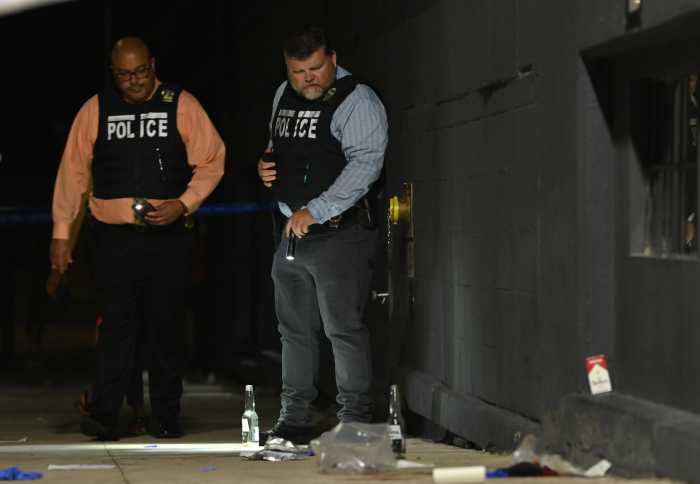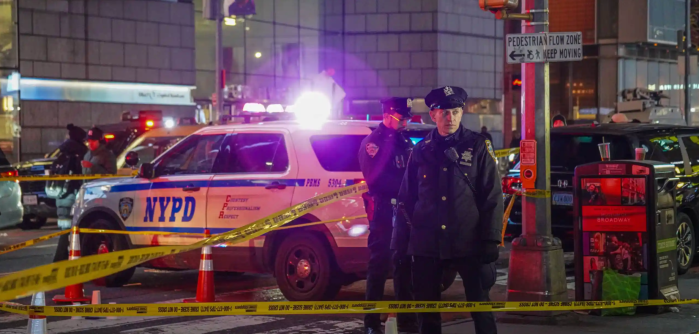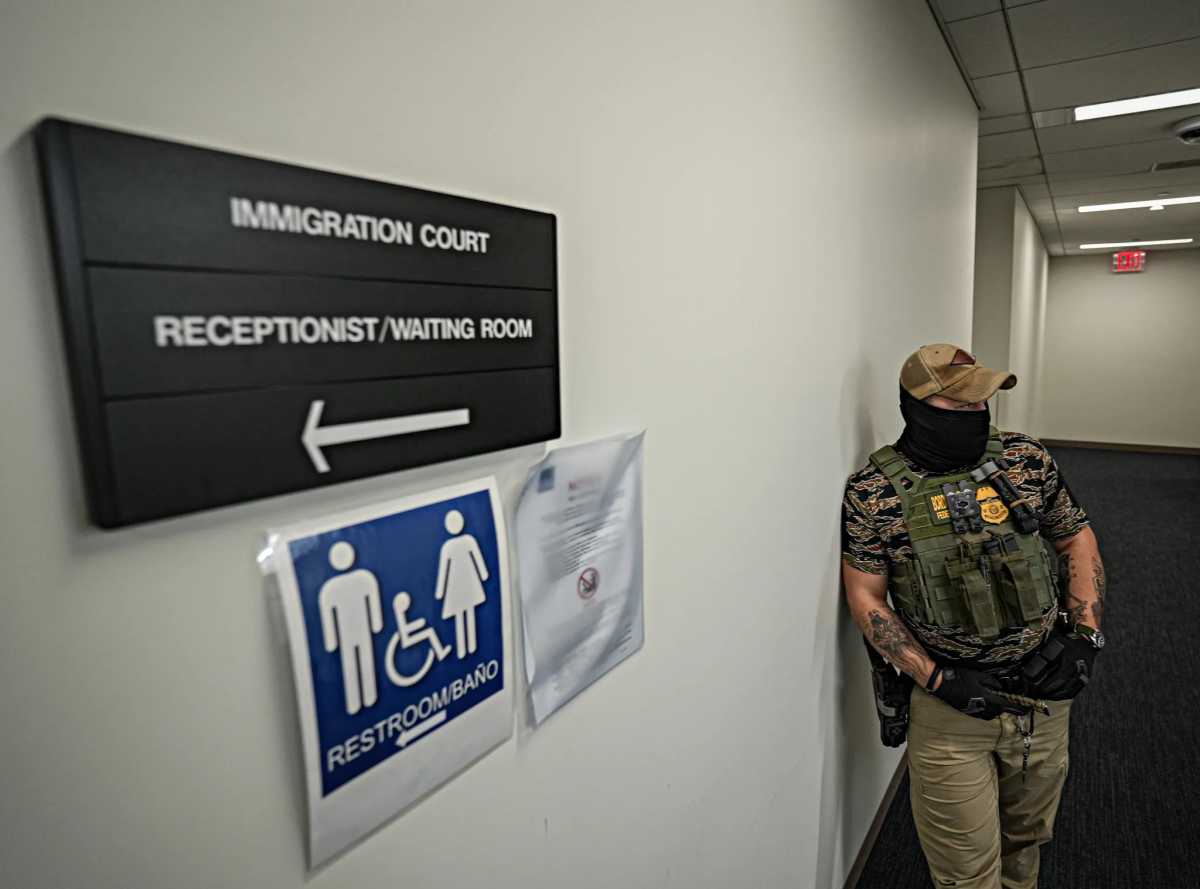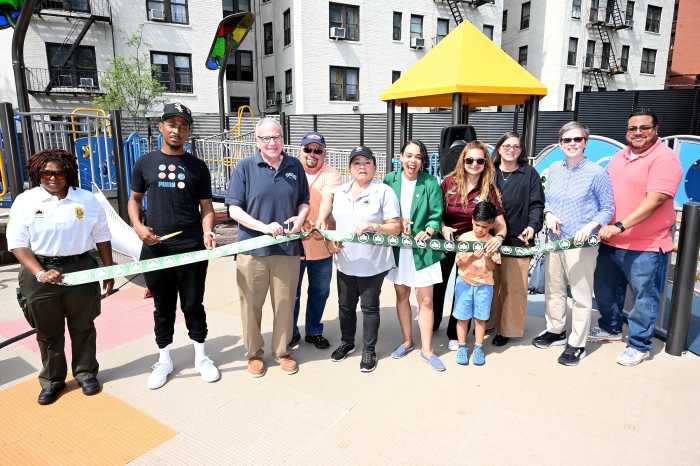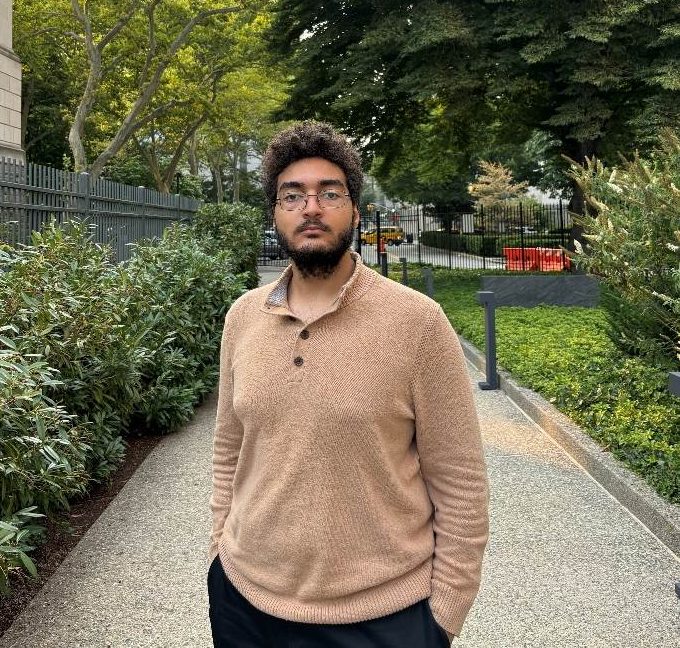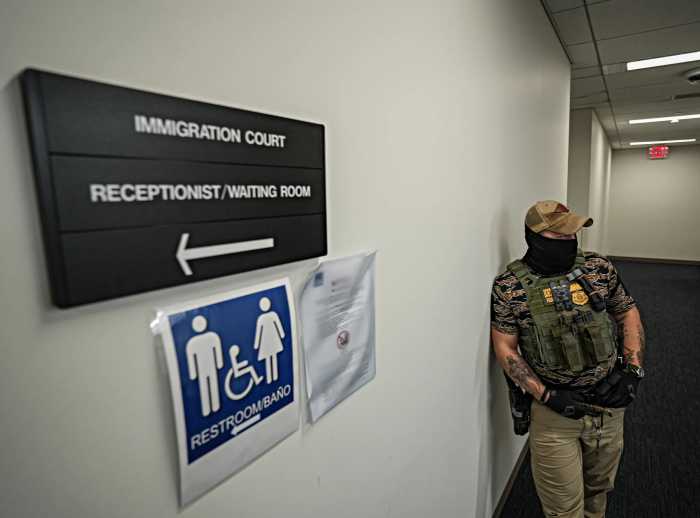
BY LINCOLN ANDERSON | The Sierra Club, a bipartisan group of 23 New York State legislators, 27 law professors from across the U.S. and others recently filed amicus briefs to stop the New York University expansion plan, protect parkland and uphold the Public Trust Doctrine.
Many of the organizations and individuals are not from New York and got on board because the court case will have national ramifications, especially for so-called implied parkland everywhere.
A total of five amicus briefs have been filed in support of the petitioners in the case — Glick v. Harvey — which is to be heard by the Court of Appeals, New York’s highest court, on Tues., June 2. The case has been wending its way through the court system since it was filed in September of 2012.
Attorney Randy Mastro, a partner at Gibson Dunn & Crutcher, which has represented the petitioners on a pro-bono basis, said, “We are extremely gratified to have such a broad, diverse coalition of parties coming forward to support our appeal, to safeguard the Public Trust Doctrine, and to protect one of our most precious resources — our public parks.”
The amici, or “friends,” who have filed briefs in support of the lawsuit include a bipartisan coalition of five state senators, including Brad Hoylman, Dan Squadron, Liz Krueger and Bill Perkins, and 18 assemblymembers; plus the Sierra Club — the pre-eminent national parks advocacy organization, with more than 2 million members and supporters, 40,000 of whom live in New York State — New York Civic, an organization dedicated to transparency and fairness of government conduct, led by the city’s longest-serving Parks Department commissioner, Henry Stern; a group of several dozen law professors who are experts in the Public Trust Doctrine; Friends of LaGuardia, which cares for LaGuardia Park, and other community and neighborhood organizations.
The final outcome of the lawsuit, which passed through two lower courts with differing results, could have massive ramifications for the way that the city and the state deal with public parks in the future.
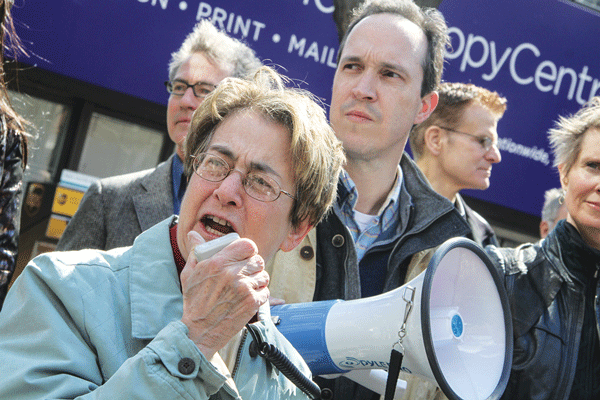
The legislators’ amicus brief argues that the City Council’s decision in 2012 to authorize N.Y.U. to use public parkland for development violated the Public Trust Doctrine, and that the state Legislature is the only entity that can legally make such an authorization.
At stake in N.Y.U.’s proposed development plan are four parks — two children’s playgrounds, a communal garden and a dog run — on LaGuardia Place and Mercer St. between W. Third and Houston Sts. that have been continuously used for recreation for decades. The full N.Y.U. plan would add nearly 2 million square feet of space in four new buildings on the two superblocks.
On Oct. 14 of last year the Appellate Division’s First Department overturned Justice Donna Mills’s January 2014 decision that would have spared three of the park strips — Mercer Playground, LaGuardia Park and LaGuardia Corner Gardens — from destruction under the university’s expansion plan.
According to the lower court’s ruling, all three strips have been used as public parks for many years, making them “implied” parkland, with the city funding, labeling and maintaining them as parks.
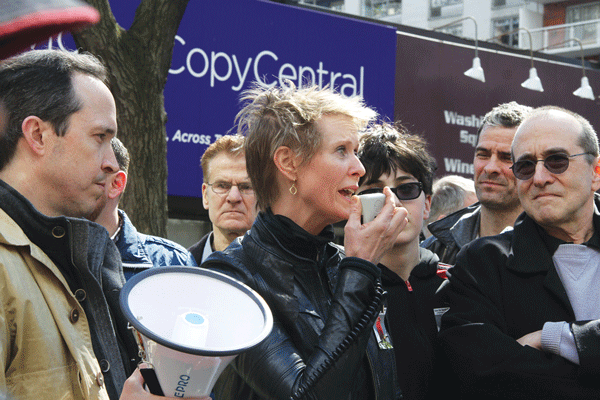
Alan Gerson, a member of Sierra Club N.Y.C.’s Group Executive Committee said, “This decision is not only about the four parks at issue here. The permissible destruction of these parks in New York City will open the door to the destruction of parks and open spaces throughout not only New York State, but the country.”
Daniel E. Estrin, who teaches law at Pace University, was one of 26 law professors who signed onto their own amicus brief.
“City parkland is a vital, nonrenewable resource with enormous tangible, and intangible, health benefits to communities,” Estrin said. “In congested urban environments like Lower Manhattan, the need to preserve every remaining inch of recreational space is even more paramount. For the citizens that have grown to depend on them, these small public spaces are their Central Park, their Prospect Park, and they deserve protection just as do those crown jewels of the city park system.”
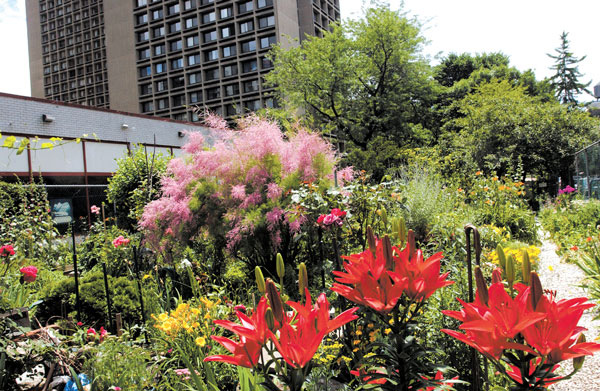
Daniel M. Sullivan, counsel for New York Civic, said, “Parks can’t be taken from the public without a vote by state legislators. A decision against the Greenwich Village residents would upend more than 100 years of precedent that has protected our public spaces, including those the public has used as parks without their being formally designated as such.”
State Senator Hoylman said, “The law is clear that N.Y.U. should have sought the approval of the New York State Legislature for the alienation of this public parkland. But the only thing the university ended up alienating was the goodwill of the Greenwich Village community. I’m proud to stand with Assemblymember Deborah Glick and my colleagues in the Senate and Assembly on this important point of state legislative prerogative, which exists to help thwart hasty local governmental decisions, such as the very kind in this case that would result in the destruction of our precious public parks.”
Added Squadron, “In our state, public parkland cannot be alienated without approval by the New York state Legislature — a doctrine we urge the court to recognize in this case.”
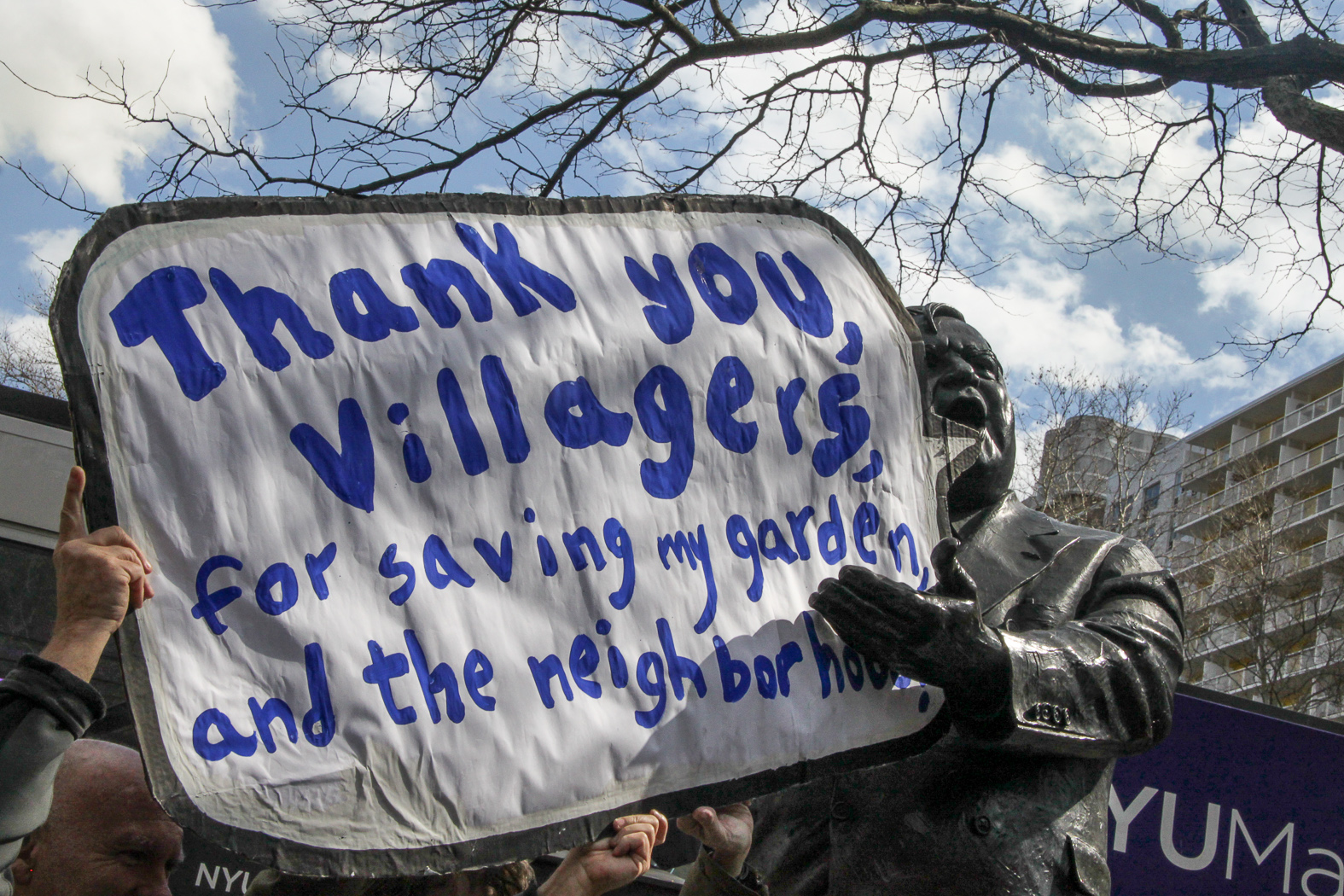
Glick is one of the petitioners on the lawsuit.
“For many years, park alienation legislation has come to the Legislature from communities all over the state, including New York City,” Glick said. “The desire to assist a powerful private institution should not obviate the normal processes of government.”
The Greenwich Village Society for Historic Preservation is also a petitioner in the lawsuit.
“There’s a lot on the line here, not just for the Village, but for all of New York City,” said Andrew Berman, the society’s executive director. “The question is can our own government violate the law and give away public land to powerful and well-connected institutions, or will the modest protections we have for public space and resources be allowed to stand? Every New Yorker has a stake in ensuring that the Court of Appeals upholds Justice Mills’s ruling and does not allow the N.Y.U. plan to proceed.”
Another one of the Assembly amici, Jeffrey Dinowitz, who represents Riverdale, recalled the battle over building the massive Croton water-filtration plant in Van Cortlandt Park, which is in his district.
“When New York City insisted it could build in Van Cortlandt Park without first coming to the Legislature, we proved them wrong,” he said. “Likewise, N.Y.U. should not be able to build without the Legislature authorizing park alienation.”
Signers of the legislators’ amicus brief include state Senators Hoylman, Squadron, Krueger, Perkins and Gustavo Rivera, along with Assemblymembers Dinowitz, Keith Wright, Daniel O’Donnell, Harry Bronson, Ellen Jaffee, Kevin Cahill, Crystal Peoples-Stokes, Victor Pichardo, Barbara Lifton, William Colton, Catherine Nolan, Steve Englebright, Steven Otis, Michelle Schimel, Jo Anne Simon, Fred W. Thiele, Jr., Andrew P. Raia and Chad Lupinacci.
Naturally, N.Y.U.’s response to the flood of amicus briefs was not friendly.
In a statement, university spokesperson John Beckman said, “A reversal of the Appellate Division’s decision would confront not only New York City but town and city governments throughout the state with a dilemma: Give up much-cherished temporary uses of municipal land — such as community gardens or recreational use of empty lots — or give up using the land in the future for other important municipal needs, like low-income housing or building healthcare facilities. Governments will logically choose the former, and the ironic result is that instead of preserving green space, as the opponents claim, New York will end up with fewer green spaces. By way of example: The majority of spaces managed by the city’s Parks Department are not parkland, and an adverse ruling would compel the city to have to rethink those uses.
“And there’s another irony,” Beckman added, “the opponents’ position on what it takes for land to be deemed implied parkland — a de minimis standard of people simply thinking it is a park — actually circumvents and undermines the established democratic processes our city has established for deciding land use. City property would become parkland with no City Council votes, no ULURP reviews, no public comments and no hearings.”
Beckman noted that N.Y.U. has some amici, too, namely, amicus briefs in support of the university and the city in their legal fight for the mega-development plan, including the New York State Conference of Mayors and Municipal Officials, the Association of Towns of the State of New York, the City of Rochester, the City of Syracuse, as well as New Yorkers for Parks, the Greater Hospital Association, the Commission on Independent Colleges and Universities, the Association for Neighborhood Housing Development, and the New York Housing Conference, among others.




